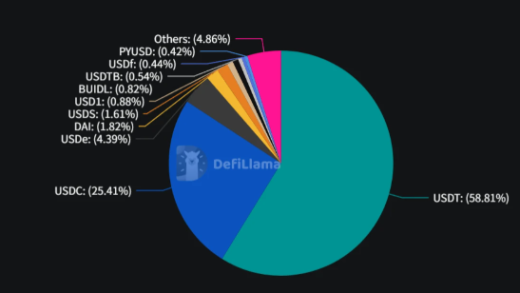
The Lucrative Business Behind the Call for “Free Kindergartens”
Problem Analysis: The Contradictions of Free Education and Business Logic
In recent years, the call for “free kindergartens” has been gradually rising in society, especially among young parents. The high cost of kindergartens has put a heavy burden on many families, and the government and society’s attention to inclusive education has also boosted the popularity of this topic. However, behind this seemingly public – welfare call, there lies a little – known lucrative business chain.
Why are kindergarten fees so high? Why does the call for “free” kindergartens actually give rise to a lucrative business? The root of the problem lies in the business model and the contradiction between supply and demand in the kindergarten industry. Kindergartens have high operating costs and are strictly regulated, but the market demand is strong, especially for high – quality educational resources. This imbalance between supply and demand provides opportunities for some institutions to “take advantage of loopholes” and even gives birth to a lucrative business using the gimmick of “free”.
Solution: The Operation Mode of the Lucrative Business
1. The Rationality of High Tuition Fees
The operating costs of kindergartens mainly include venue rent, teacher salaries, facility maintenance, and curriculum development. Especially in first – tier cities, venue rent and labor costs account for most of the expenditures. However, some high – end kindergartens push up tuition fees to tens of thousands of yuan or even higher through brand premium and additional services (such as bilingual teaching and international courses), far beyond the affordability of ordinary families.
2. Hidden Charges Behind “Free”
Some institutions attract parents under the banner of “free” or “inclusive” but actually make profits in other ways. For example:
– Bundled Consumption: Require parents to buy high – priced textbooks, school uniforms, or participate in extracurricular activities.
– Membership System: Nominally free, but parents need to pay a high membership fee or deposit.
– Extended Services: The free period is limited, and additional fees are required for overtime.
3. Capital Intervention and Rapid Expansion
In recent years, capital’s attention to the education industry has increased, and kindergartens have become a hot investment area. Some institutions achieve large – scale profits through rapid expansion and chain operation, but often neglect education quality. This “enclosure” model can bring high returns in the short term but may lead to the waste of educational resources and damage to parents’ rights and interests.
4. Policy Loopholes and Lack of Supervision
Although the government has clear regulations on kindergarten fees, some institutions avoid supervision by playing “edge – ball” games. For example, they split tuition fees into multiple items or transfer profits through affiliated enterprises. The lag and ineffective implementation of supervision also provide room for these behaviors.
Practical Suggestions: How to Avoid Traps
For entrepreneurs or parents, how can they avoid risks in this complex market? Here are some practical suggestions:
1. From the Perspective of Entrepreneurs
- Compliant Operation: Strictly abide by policy regulations and avoid making profits through gray means.
- Transparent Charging: Clearly publicize all fees and eliminate hidden consumption.
- Focus on Reputation: The core of the education industry is trust, and long – term development depends on parents’ word – of – mouth.
2. From the Perspective of Parents
- Compare Multiple Options: When choosing a kindergarten, not only look at tuition fees but also understand hidden charges and the actual service quality.
- Beware of “Free” Gimmicks: Carefully read the contract terms to avoid being trapped in bundled consumption.
- Participate in Supervision: Actively feedback problems to promote industry transparency.
Case Study: The RYB Kindergarten Incident
In 2017, the RYB Kindergarten incident, involving child abuse, attracted wide social attention. This incident not only exposed the management loopholes in kindergartens but also revealed the chaos in the education industry driven by capital. As a listed company, RYB’s rapid expansion model led to management out of control and ultimately a tragedy. After the incident, the government strengthened supervision over kindergartens, which also reminds us that the lucrative business in the education industry often comes at the cost of sacrificing quality.
The RYB case shows that educational institutions that simply pursue profits cannot last long. Only by returning to the essence of education, focusing on service and quality, can they stand out in the fierce market competition.
Conclusion
The call for “free kindergartens” reflects society’s expectation for inclusive education but also reveals the lucrative business in the industry. Both entrepreneurs and parents need to view this phenomenon rationally and avoid being deceived by appearances. For entrepreneurs, compliant operation and long – term thinking are the keys; for parents, careful selection and active participation in supervision are effective ways to protect their own rights and interests. Only through the joint efforts of multiple parties can the kindergarten industry move towards a healthier and more sustainable development path.
- Startup Commentary”Three post-2005 entrepreneurs are reported to have secured a new financing of 350 million yuan.”
- Startup Commentary”Retired and Reemployed: I Became Everyone’s “Shared Grandma””
- Startup Commentary”YuJian XiaoMian Breaks Issue Price on Listing: Where Lies the Difficulty for Chinese Noodle Restaurants to Break Through in the Market? “
- Startup Commentary”Adjusting Permissions of Doubao Mobile Assistant: AI Phones Are a Flood, but Not a Beast”
- Startup Commentary”Moutai’s Self – rescue and Long – term Concerns”





